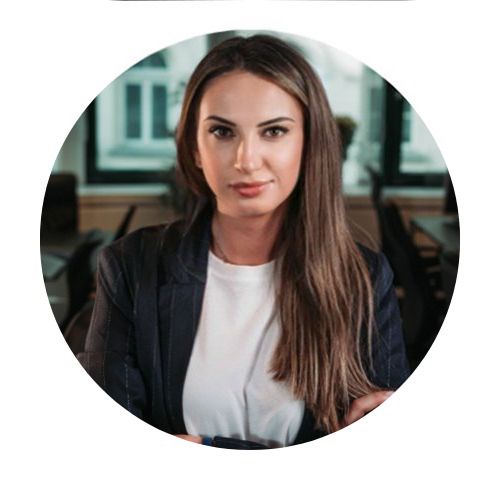Dictionary – what do these terms mean?
Have you ever looked for information about universities abroad but couldn’t understand what it was saying? Find out with our dictionary!
Denmark
Danskprøve – A set of Danish Language Proficiency tests, which have three levels. The highest level, 3, is equivalent to B2 in the European framework. The tests are divided into written and oral sections, which are examined on separate days, and these examinations are held twice a year. Level 3 is accepted as evidence of language abilities by all Danish universities and is a prerequisite for anyone applying for citizenship.
Hygge – A feeling of wellbeing and contentment, which can occur on your own or with others, wherever you might be. Hygge is a sense of being comfortable in the moment, of being in a cosy, happy place in your life, and the little rituals and choices which make the simplest moments extraordinary.
Optagelse – The central national admissions system which processes all applications to Danish universities.
Professionshøjskoler – An association of eight educational institutions, namely, six university colleges, the Danish School of Media and Journalism and the Copenhagen School of Marine Engineering and Technological Management. Each institution has its own rector and staff, and they all offer professional Bachelor’s programmes. Among the subjects you can study are: nursing, social work, business, engineering, the arts and technology. The aim of this association is to promote a global network and international initiatives and competencies, by forging close links and partnerships with universities across the world. A number of courses are taught in English.
SU – State Educational Grant and Loan Scheme, which provides financial support to Danish and international students.
Vejledning – A tutor.
France
Baccalauréat – The school-leaving diploma sat at the end of secondary school, which qualifies students to apply to university.
Classes Préparatoires aux Grandes Écoles – The CPGE consist of a two-year course. which prepares students to sit the examinations for entry into the Grandes Écoles. The standard is identical to that of the first two years at university, and it is necessary to get a good report from the lycée to be considered for these preparatory classes. The entry exam to the Grandes Écoles itself is highly competitive and normally takes place in April and May.
DALF – Diplôme Approfondi de langue française. Official diploma of language proficiency awarded by the French Ministry of Education. The DALF C1 exam last three and a half hours and the DALF C2 takes four hours. Both examinations test listening, speaking, comprehension and writing.
DELF – Diplôme d’études en langue française. Official diploma of language proficiency issued by the French government , which is divided into four levels: A1, A2, B1, B2. The exam length varies according to the level, from 1 hour 20 minutes at A1, to two hours and 30 minutes at B2. These qualifications are valid for life.
Grande École – The most prestigious institutions of higher education in France, the Grandes Écoles only admit a few hundred applicants every year and specialise in preparing future civil servants, technicians and engineers etc for their role in the higher echelons of government and the professions. These institutions are private, rather than public, and currently number 250. Their entry examinations are notoriously demanding.
The Netherlands
Decentralised selection – see in this dictionary: Numerus Fixus
Doctoraal – A Master’s degree.
ECTS – European Credit Transfer and Accumulation System. This is an important tool of the Bologna Process, since it standardises educational qualifications across the European Higher Education System . Students can move from one university to another , and have their academic qualifications and study periods recognised and credited. The ECTS is based on credits. A Bachelor’s degree, for example, will need 180 or 240 credits, while a Master’s requires 90 or 120. Students can transfer credits between institutions.
HBO and WO institutions – There are two kinds of universities in the Netherlands. The first are research universities (WO), with an emphasis on analysis, critical thinking , independent learning and developing abstract theoretical skills. WO Bachelor’s degrees take three years and give a student 180 ECTS (see above). HBO education is undertaken in universities of applied science, which prepare students for practical professions, emphasise acquiring competencies and using theory in practical contexts. HBO Bachelor’s degrees take four years and give a student 240 ECTS.
Hogescholen – University of Applied Sciences .The term also covers conservatoriums and schools of art and design.
IDW – Internationale Diplomawaardering. An international credential evaluation service, which determines the Dutch equivalent of foreign diplomas. The administrative process can take from six to eight weeks before you receive a decision.
Numerus Fixus – Programmes with a fixed number of places available. If there are more applicants than places, a selection process takes place and applicants are given a ranking number. You can apply to two Numerus Fixus courses per academic year, but they cannot be to the same program: for example, you can apply to dentistry and medicine, but not to two dentistry courses. Most English-taught courses do not have Numerus Fixus, with the exception of law and medicine – but this varies from university to university. Applications have to be submitted before 15 January 23:59 CET, and results are announced after 15 April.
NVAO – An independent quality assurance agency which reviews and monitors the quality of universities and colleges, their courses and performance. The agency also provides accreditation for any new programmes before they can be introduced.
Research university – Universities in the Netherlands , which offer three-year degree courses, and have a traditional approach to learning and research.
Studielink – The central admissions system of the Netherlands.
Universiteit – Research university.
University of Applied Science – These universities offer highly practical four-year degree courses, shaped by the needs of industry and business.
Spain
Bachillerato – The Spanish equivalent of two years studying for the International Baccalaureate, Polish matura, UK A Levels etc. It is the post-16 stage of education and is made up of two parts: a mandatory core curriculum, and a specialised, optional part with various branches to choose from. Passing the Bachillerato allows Spanish students to start vocational training or take university admission tests.
DELE – Internationally-recognised diplomas of linguistic competence and mastery of the Spanish language, awarded by the Spanish Ministry of Education , Culture and Sport. There are six levels, from A1 to C2.
LOGSE – Educational reforms implemented in 1991-2.LOGSE: raised the school leaving age from 14 to 16, integrated special needs into mainstream schools, made religious education optional, brought in a new, longer and more comprehensive curricula and emphasised the need for vocational training tailored to the demands of the economy. LOGSE has divided primary and secondary education into two integrated systems.
Selectividad – Spanish university access tests , made up of six 90-minute written exams, which are sat in June or September over a three day period. The exams cover the common and specialised subjects taken in the Bachillerato.


